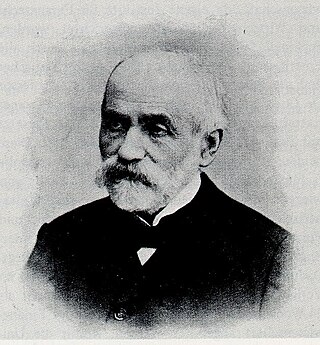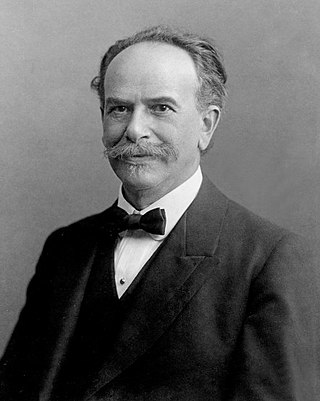
Anthropology is the scientific study of humanity, concerned with human behavior, human biology, cultures, societies, and linguistics, in both the present and past, including past human species. Social anthropology studies patterns of behavior, while cultural anthropology studies cultural meaning, including norms and values. A portmanteau term sociocultural anthropology is commonly used today. Linguistic anthropology studies how language influences social life. Biological or physical anthropology studies the biological development of humans.

Cultural anthropology is a branch of anthropology focused on the study of cultural variation among humans. It is in contrast to social anthropology, which perceives cultural variation as a subset of a posited anthropological constant. The term sociocultural anthropology includes both cultural and social anthropology traditions.

Ethnocentrism in social science and anthropology—as well as in colloquial English discourse—means to apply one's own culture or ethnicity as a frame of reference to judge other cultures, practices, behaviors, beliefs, and people, instead of using the standards of the particular culture involved. Since this judgment is often negative, some people also use the term to refer to the belief that one's culture is superior to, or more correct or normal than, all others—especially regarding the distinctions that define each ethnicity's cultural identity, such as language, behavior, customs, and religion. In common usage, it can also simply mean any culturally biased judgment. For example, ethnocentrism can be seen in the common portrayals of the Global South and the Global North.

Franz Uri Boas was a German-American anthropologist and a pioneer of modern anthropology who has been called the "Father of American Anthropology". His work is associated with the movements known as historical particularism and cultural relativism.
Linguistic anthropology is the interdisciplinary study of how language influences social life. It is a branch of anthropology that originated from the endeavor to document endangered languages and has grown over the past century to encompass most aspects of language structure and use.
Identity is the qualities, beliefs, personality traits, appearance, and/or expressions that characterize a person or a group.
In the social sciences and related fields, a thick description is a description of human social action that describes not just physical behaviors, but their context as interpreted by the actors as well, so that it can be better understood by an outsider. A thick description typically adds a record of subjective explanations and meanings provided by the people engaged in the behaviors, making the collected data of greater value for studies by other social scientists.

Material culture is the aspect of culture manifested by the physical objects and architecture of a society. The term is primarily used in archaeology and anthropology, but is also of interest to sociology, geography and history. The field considers artifacts in relation to their specific cultural and historic contexts, communities and belief systems. It includes the usage, consumption, creation and trade of objects as well as the behaviors, norms and rituals that the objects create or take part in.

Peace and conflict studies or conflict analysis and resolution is a social science field that identifies and analyzes violent and nonviolent behaviors as well as the structural mechanisms attending conflicts, with a view towards understanding those processes which lead to a more desirable human condition. A variation on this, peace studies (irenology), is an interdisciplinary effort aiming at the prevention, de-escalation, and solution of conflicts by peaceful means, thereby seeking "victory" for all parties involved in the conflict.
Melford Elliot Spiro was an American cultural anthropologist specializing in religion and psychological anthropology. He is known for his critiques of the pillars of contemporary anthropological theory—wholesale cultural determinism, radical cultural relativism, and virtually limitless cultural diversity—and for his emphasis on the theoretical importance of unconscious desires and beliefs in the study of stability and change in social and cultural systems, particularly in respect to the family, politics, and religion. Explicated in numerous theoretical publications, they are empirically exemplified in monographs based on his fieldwork in Ifaluk atoll in Micronesia, an Israeli kibbutz, and a village in Burma.
Psychological anthropology is an interdisciplinary subfield of anthropology that studies the interaction of cultural and mental processes. This subfield tends to focus on ways in which humans' development and enculturation within a particular cultural group—with its own history, language, practices, and conceptual categories—shape processes of human cognition, emotion, perception, motivation, and mental health. It also examines how the understanding of cognition, emotion, motivation, and similar psychological processes inform or constrain our models of cultural and social processes. Each school within psychological anthropology has its own approach.
Kevin Clements is an Emeritus Professor of Peace and Conflict Studies at the University of Otago, New Zealand. He was formerly Professor of Peace and Conflict Studies and Foundation Director of the Australian Centre for Peace and Conflict Studies (ACPACS) at the University of Queensland. He has also been Secretary General of the International Peace Research Association since January 2009. Since 2016 he was appointed Director of the Toda Peace Institute, Tokyo, Japan.
Alessandro Duranti is Distinguished Research Professor of Anthropology and served as Dean of Social Sciences at UCLA from 2009 to 2016. He is a Fellow of the American Academy of Arts and Sciences.
Mohammed Abu-Nimer is an American expert on conflict resolution and dialogue for peace. He is a full professor at the American University School of International Service in International Peace and Conflict Resolution in Washington, DC, the largest school of international relations in the United States.

Alma Abdul-Hadi Jadallah, is a social scientist, internationally recognized mediator, facilitator and trainer, as well as a scholar-practitioner and educator with close to twenty years of experience in the field of conflict analysis and resolution, research and applied practice, peacebuilding, conflict prevention, and transformation. Since 2005, she has been the President and Managing Director of Kommon Denominator Inc., a private consulting firm.
Social anthropology is the study of patterns of behaviour in human societies and cultures. It is the dominant constituent of anthropology throughout the United Kingdom and much of Europe, where it is distinguished from cultural anthropology. In the United States, social anthropology is commonly subsumed within cultural anthropology or sociocultural anthropology.
Susan F. Hirsch is a legal anthropologist whose work has specialized in the study of legal language. She is a professor of conflict resolution and anthropology at George Mason University, where she holds the Vernon M. and Minnie I. Lynch Chair in the Jimmy and Rosalynn Carter School for Peace and Conflict Resolution.

The Jimmy and Rosalynn Carter School for Peace and Conflict Resolution is a constituent college of George Mason University based near Washington, D.C., United States, specializing in peace and conflict studies with locations in Arlington, Fairfax, and Lorton, Virginia, as well as at the Mason Korea campus in Songdo, South Korea. On July 1, 2020, the School for Conflict Analysis and Resolution was renamed the Jimmy and Rossalyn Carter School for Peace and Conflict Resolution, following an announcement by the university in March 2020.
Donald Lawrence Brenneis is an American anthropologist and professor of anthropology at the University of California, Santa Cruz. Brenneis served as president of the American Anthropological Association (2002–2003). He became co-editor of the Annual Review of Anthropology as of 2010. He has served two terms as director of the American Council of Learned Societies.
Mary Margaret Clark (1925–2003) was an American medical anthropologist who is credited with founding the sub-discipline of medical anthropology.








